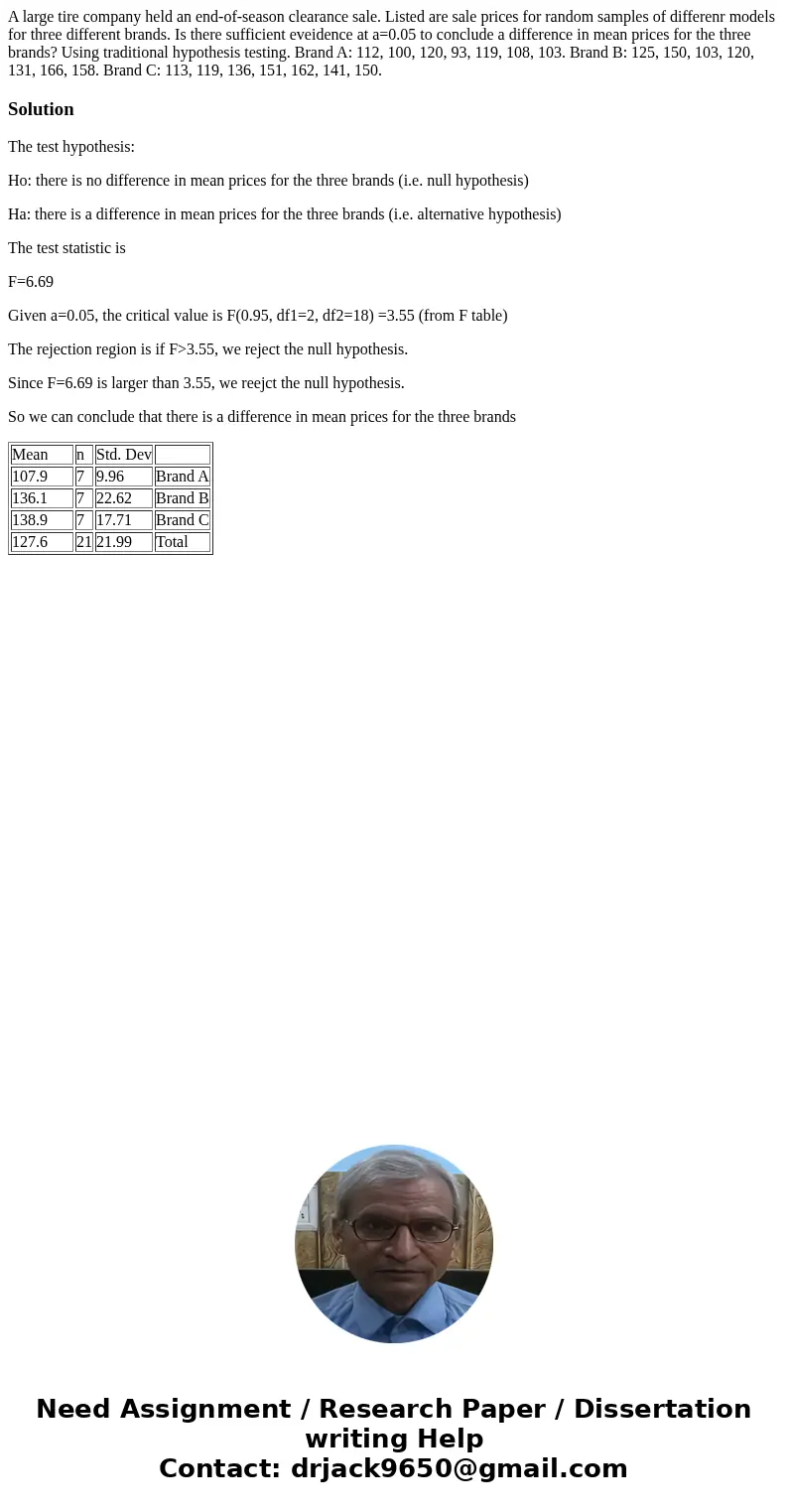A large tire company held an endofseason clearance sale List
A large tire company held an end-of-season clearance sale. Listed are sale prices for random samples of differenr models for three different brands. Is there sufficient eveidence at a=0.05 to conclude a difference in mean prices for the three brands? Using traditional hypothesis testing. Brand A: 112, 100, 120, 93, 119, 108, 103. Brand B: 125, 150, 103, 120, 131, 166, 158. Brand C: 113, 119, 136, 151, 162, 141, 150.
Solution
The test hypothesis:
Ho: there is no difference in mean prices for the three brands (i.e. null hypothesis)
Ha: there is a difference in mean prices for the three brands (i.e. alternative hypothesis)
The test statistic is
F=6.69
Given a=0.05, the critical value is F(0.95, df1=2, df2=18) =3.55 (from F table)
The rejection region is if F>3.55, we reject the null hypothesis.
Since F=6.69 is larger than 3.55, we reejct the null hypothesis.
So we can conclude that there is a difference in mean prices for the three brands
| Mean | n | Std. Dev | |
| 107.9 | 7 | 9.96 | Brand A |
| 136.1 | 7 | 22.62 | Brand B |
| 138.9 | 7 | 17.71 | Brand C |
| 127.6 | 21 | 21.99 | Total |

 Homework Sourse
Homework Sourse